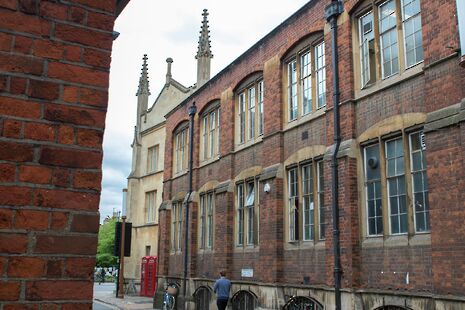More heat than light as CUSU tries to embrace added accountability
As the student union attempts to engage students with its funding challenges, the nascent financial inquiry begins its work

CUSU began its attempt to escape financial woes this week, revealing limited information about its ongoing expenditure in an effort to boost transparency and accountability.
Broad positives for the struggling student union, including a cut to to its projected losses this year, were marred by a semi-public scrap with CUSU-funded paper The Cambridge Student (TCS) and a muted reception at Monday’s Council.
Using year-to-date expenditure statistics, CUSU reassessed its predicted losses for this year: expected now to be in the region of £70,000 including savings, possibly falling even more once the student union receives additional funding from the central University.
CUSU’s attempt to give an appearance of belt-tightening, however, was marred slightly by the context of those savings. The most substantial overall saving made was to its expenditure on affiliation to the National Union of Students (NUS). CUSU has been charged just £250 so far this year – it had budgeted to pay £10,527.
At Council on Monday, where the figures were presented, CUSU president Daisy Eyre expressed apparent surprise at the saving. She told Varsity on Thursday that CUSU “routinely make it clear to the NUS that our budget is small compared to other unions, and it seems that they have responded to this.”
“We are very happy that they have reduced our fee; though ultimately dismayed that a union at a university such as Cambridge should be paying such a small fee compared to comparable NUS affiliates,” she added.
NUS did not reply to a request for comment on why CUSU had been charged a reduced fee.
The relationship between CUSU and The Cambridge Student was publicly strained at the beginning of the week, with both releasing statements admonishing the other – before settling upon an unclear resolution.
In a briefing document released ahead of Monday’s council, CUSU wrote: “Print continues to perform far below that expected with a significant loss in revenue from TCS expected for the end of the year.” When contacted by Varsity, the TCS board of directors stated that they were “surprised to find [their] financial situation discussed in the mid year financial budget review,” and had contacted Eyre “about what we perceive to be regrettable inaccuracies.”
In response to this, Eyre said that CUSU had “confirmed to [TCS] that the document accompanying the Mid-Year budget review is accurate.” Beyond this, Eyre added that CUSU have “no plans to change TCS’ funding.” The subject was raised again at Monday’s Council, when Eyre spoke of wanting to clear up “inaccuracies” surrounding TCS overspending its budget – an accusation which had not been made by either party to begin with.
On Thursday, Eyre told Varsity: “Over the weekend, there was a communication issue between TCS and CUSU that led to some confused press coverage. This was resolved through private communications between ourselves and TCS in which we confirmed that the paper was making a loss. Overall, we are concentrating our efforts on other income streams, such as our new careers project and on BlueSci, our other publication. While print advertising is in decline, niche publications like BlueSci are doing better.”
CUSU’s budget for the 2018-2019 academic year is set to be passed in Easter term. Its new “careers initiative,” which made its debut in 2017, underperformed financially in its first year. This was attributed to “limited market information to work upon” and not promoting the event until “the start of Summer.” However, with claims in the budget review that feedback on its new careers initiative was “positive,” and “presents optimism going into future,” CUSU trustees have decided not to change income projections.
Meanwhile, the CUSU financial enquiry has begun its investigation into the student union’s substantial losses. Connor MacDonald, who is chairing the enquiry, said: “we had a very productive first meeting. Daisy and CUSU have been very helpful, and we look forward to a more in detail meeting next week.” In its next meeting, the enquiry plans to meet with Gareth Marlow, one of CUSU’s longest-standing trustees.
 News / Judge Business School advisor resigns over Epstein and Andrew links18 February 2026
News / Judge Business School advisor resigns over Epstein and Andrew links18 February 2026 News / Hundreds of Cambridge academics demand vote on fate of vet course20 February 2026
News / Hundreds of Cambridge academics demand vote on fate of vet course20 February 2026 News / Gov grants £36m to Cambridge supercomputer17 February 2026
News / Gov grants £36m to Cambridge supercomputer17 February 2026 News / CUCA members attend Reform rally in London20 February 2026
News / CUCA members attend Reform rally in London20 February 2026 News / Union speakers condemn ‘hateful’ Katie Hopkins speech14 February 2026
News / Union speakers condemn ‘hateful’ Katie Hopkins speech14 February 2026











